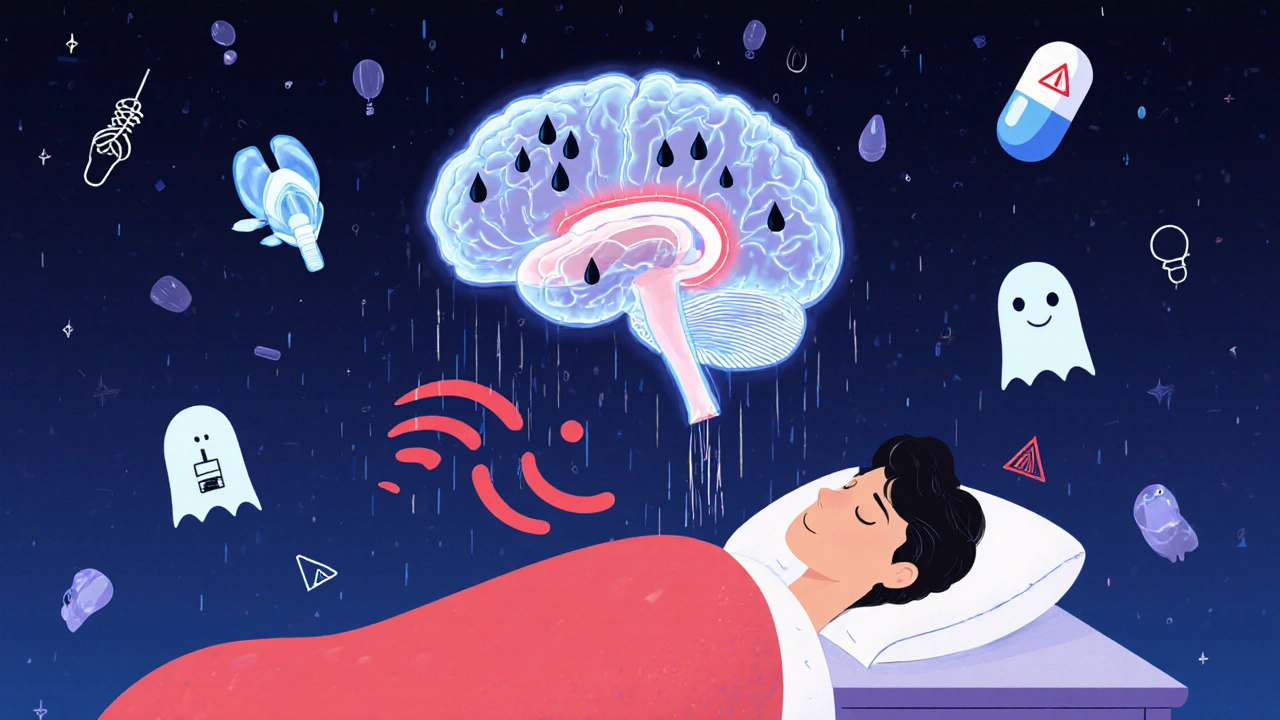Sleep Apnea: Causes, Risks, and Medication Considerations
When you have sleep apnea, a condition where breathing repeatedly stops and starts during sleep. It’s not just snoring—it’s your body struggling to get oxygen, often without you even realizing it. Left untreated, it raises your risk for high blood pressure, heart attacks, and stroke. Many people don’t know they have it until a partner notices the gasping or they wake up exhausted despite a full night’s rest.
Obstructive sleep apnea, the most common type, happens when throat muscles relax and block the airway. OSA is linked to obesity, large neck size, and aging—but it also gets worse with certain medications. Sedatives, muscle relaxants, and even some anxiety drugs can loosen throat muscles even more, making breathing interruptions longer and more dangerous. If you’re on pain meds, sleep aids, or antidepressants, talk to your doctor about how they might be affecting your sleep. Some people think their fatigue is just stress or aging, when it’s actually sleep apnea being made worse by their prescriptions.
CPAP therapy, a device that delivers steady air pressure to keep your airway open, is the gold standard treatment. But not everyone tolerates it. That’s why alternatives like oral appliances, positional therapy, or weight loss are often part of the plan. And while there’s no pill that cures sleep apnea, some medications can help manage symptoms or related conditions—like nasal decongestants for congestion or drugs for heart issues triggered by low oxygen. What you won’t find is a magic drug that fixes the root problem. Real progress comes from understanding how your lifestyle, meds, and sleep habits interact.
Looking through the articles here, you’ll see how sleep apnea ties into broader health issues—like how opioids can deepen breathing pauses, how alcohol worsens airway collapse, and why some blood pressure meds might mask symptoms. You’ll also find guides on checking for dangerous drug interactions, spotting side effects, and asking the right questions to your doctor. This isn’t just about sleep—it’s about protecting your heart, your brain, and your daily energy. If you’ve ever woken up choking, felt foggy all day, or been told you snore like a chainsaw, this collection gives you the real talk you need.
Sleep Apnea and Opioids: How Pain Medications Increase Nighttime Oxygen Drops
Opioids can severely disrupt breathing during sleep, causing dangerous drops in oxygen levels. Learn how pain medications increase the risk of nighttime hypoxia and what steps you can take to protect yourself.
More
